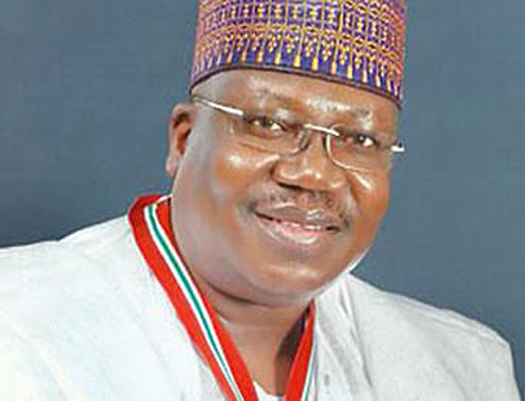1976 Local Government Reform Responsible For Insecurity In Nigeria- Lawan
The Senate President, Ahmed Lawan has attributed the continued insecurity across the country, particularly in the Northern part of the country to vacuum of intelligence gathering at the grassroots created by the 1976 local government reform.
According to Lawan, the removal of traditional rulers from the administrative structure of respective local government councils across the country through the reform created a vacuum of intelligence gathering at the grassroots, which culminated into all manner of insecurity in the country today from Boko Haram to Armed Banditry and even herdsmen/ farmers clashes.
Speaking in Abuja after the conferment of Ganuwan Kebbi title on him by the Emir of Argungun, Alhaji Muhammad Mera at the National Assembly, Lawan bemoaned the removal of traditional rulers from governance, particularly at the local government councils in 1976.
The President of the Senate said, “The traditional fathers have always been supportive of the government. We from the northern part of the country know that in the past that the traditional rulership played a very key stabilizing role in administration which is highly needed now.
“In fact, we need to have a proper formal role given a role to them and more especially with the current security situation in the country. “I am sure that the traditional rulers can provide a lot of support for government and security agencies in fighting and winning the insecurity challenges that we have today.
Answering questions from Journalists on the problem of insecurity in the country at the sideline of the ceremony, Leader of the Senate, Senator Yahaya Abdullahi, APC Kebbi North), who noted that the 1976 local government reforms laid the unfortunate foundation, particularly in the North, said that as far as intelligence gathering and required mechanism of fighting crime at the grassroots are concerned in the North, traditional rulers and by extension, the various Emirates are the best bet.
Senator Abdullahi who explained that before the 1976 local government reform, rates of crime and criminalities in the North, were low because of active roles played by traditional rulers then, said, “Unfortunately the 1976 local government reform removed the traditional rulers from an active role in governance at the grassroots and invariably created a vacuum for effective intelligence gathering which has snowballed into the big problem of insecurity in the entire North today as regards Boko Haram, Armed banditry, herders and farmers clashes etc.
“There is need to restore their role because there can be vacuum in power if you divest a group of people of required power or responsibilities, those unexpected will rush to fill the vacuum as it is the case in the North now.
“Fortunately, the process of constitution amendment is ongoing, providing an opportunity for stakeholders in the country, to fashion out a constitutional role for traditional rulers at the local government level.”
Earlier at the traditional title presentation to the Senate President, the Emir of Argungu who was represented by a delegation led by Alhaji Ibrahim Hassan, said, Lawan was considered for the title because of his quality leadership in the National Assembly and positive roles being played in the Nigerian political landscape.
The Emir added that attendance of Lawan at the last fishing and cultural festival in the Emirate, also contributed to his choice for the title.




